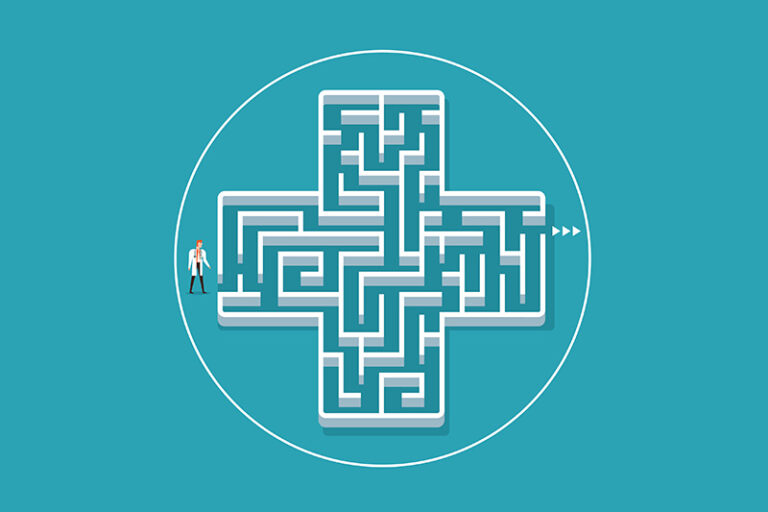
Liz Griffith
uPerform
Director, EHR Education
Welcome to the uPerform Thought Leader series, a collection of articles penned by industry leaders committed to improving health IT training and sharing their knowledge. Liz Griffith serves as the director of EHR education at uPerform and is a fiercely passionate champion for health IT training. Prior to her role at uPerform, Liz served as the director of customer insights at KLAS Research, leading EHR satisfaction consulting and measurements.
As she approaches two years with uPerform, Liz reflects on her journey as an EHR education champion. She shares the client stories that have remained top of mind and continued to inspire her in her work.
As I approach two full years at uPerform, I’ve been reflecting on how fortunate I am to weave two separate portions of my career together so strongly. After 6 years with KLAS Research it was a difficult decision to leave not only an incredible team who had become my close friends and mentors, but to walk away from meaningful research that I felt deeply connected to. Would I have a similar kind of impact in helping health systems improve the EHR experience for their clinicians? I really hoped I would, and after two years, I can say, I do!
Looking back at the decision to jump into the vendor side of the HIT world, I couldn’t have made a better choice. Joining the uPerform team meant going all-in on a mission to empower clinicians to become more productive and satisfied users of technology through higher-quality software education. With our KLAS and Arch Collaborative memberships, we are positioned to develop more effective EHR training solutions and recommendations based on unbiased, thorough research from provider organizations and direct client feedback.
Through this work we’ve developed more intimate partnerships with our clients, helping them measure the positive impacts their EHR training strategies have on their strategic initiatives with the Collaborative. I would like to look back at some of those key successes and share some of our plans for the future:
Baylor Scott & White Health: Improving clinician EHR satisfaction through virtual training
When I first came on board, uPerform just finished working through some initial Arch Collaborative survey data with Baylor Scott and White Health (BSW) in Texas. With the help of uPerform, BSW transitioned to virtual learning, which helped them quickly pivot to support caregivers during the pandemic.
Even before businesses asked for it, we had COVID cross-training ready for our end users. We took our [virtual] new hire training, grabbed our [uPerform] simulations, and created 31 COVID cross-training courses. This has been hands down one of our biggest success stories.” — Georgianna Kelly, director, enterprise technical training and support at BSW
Georgianna’s technology learning services team also rapidly increased the amount of learning material available to their clinicians by utilizing the uPerform rapid recorder. Georgianna notes “We create a lot of content. We probably create too much content. In some ways it’s too easy…to efficient.” BSW’s technology learning services team maintains 393 computer-based training modules for various groups and purposes, ranging from physicians and nurses to allied health and revenue cycles. They’ve also developed 2,369 simulations. This is all in addition to curating the existing learning material they had prior to the uPerform go-live.
While rapid creation of learning materials is a win in and of itself, the question remained: is it helping our clinicians? That is where the partnership between KLAS and uPerform came in. We surveyed both users and non-users of uPerform and segmented the data. The results were clear – clinicians who utilized uPerform were 12.9 points more satisfied than those that didn’t. For an organization already scoring high on satisfaction, moving the needle is impressive. Those same clinicians also rated their satisfaction with ongoing training 11 points higher than those not using uPerform for their EHR education.
In July 2022 we were invited to co-present these findings with Georgianna at the annual Arch Collaborative Learning Summit. As a first look into whether using uPerform can impact overall satisfaction with the EHR, this was very encouraging!
The Guthrie clinic: Empowering physicians with relevant, workflow-specific learning
In July 2021, Terri Couts, the chief digital officer at The Guthrie Clinic, presented at the KLAS Arch Collaborative Learning Summit, sharing their tremendous success in improving clinician satisfaction. In addition to scoring in the 95th percentile for physician satisfaction compared to other systems in the Collaborative, Guthrie saw improvement in the rating of how physicians view their Initial training – a 24% increase from 2019-2021. How physicians rated ongoing training also saw an increase of 30%.
When Terri was asked how they achieved this success she shared several strategies, including:
- Standardizing the creation of lesson plans and learning materials
- Defining a content distribution process
- Providing role- and workflow-specific educational content
She highlighted the implementation and usage of uPerform as one of the key strategies that supported these efforts. Terri shared how physicians are empowered to make EHR education more personal for them, including how physicians can access learning in the flow of their work, choosing the format in which they prefer to learn – whether that be a tip sheet or video they can watch.
Aspirus Health: Turning growing pains into growing gains
When faced with a large acquisition in 2021, Aspirus Health’s technology educators needed a way to onboard 2,500 new Epic users in just five weeks. Classroom training wasn’t going to be possible across their dispersed group of users. Seven new hospitals and 21 clinics needed to be brought live on Epic and trained in these new workflows. The Aspirus and uPerform teams went to work to get uPerform up and running in record time to support the Aspirus team in creating content for these go-lives. The teams worked furiously to meet these deadlines and get the new hospitals and clinics running on their new EHR.
At the same time, the team was building out training for an upgrade to include the implementation of Beaker Bugsy for their hospitals that were already live on Epic. The feedback those that received the training was incredibly positive. With statements like “The Beaker Bugsy implementation was the smoothest I have been through” and “I feel so ready to use the tools”.
When we looked at the satisfaction data for those that utilized the training in uPerform versus those that didn’t, there was a positive trend of increased overall satisfaction. This data was highly useful to the Aspirus training team as they worked to get additional uPerform functionality built into their EHR training.
M Health Fairview: Improving physician EHR satisfaction, ongoing training and trust in IT
M Health Fairview (Fairview) has been on a mission to create a single ecosystem for EHR learning and support. uPerform lives at the center of that ecosystem, enabling the team to rapidly create, manage and deliver EHR education content directly to end users within the EHR. By hosting all their content in the Learning Library and the Learning Connections Dashboard, Epic users can access the help and training they need when they need it.
We were able to look at Fairview data comparing physicians who identified themselves as users of uPerform and those that have yet to take advantage. This was done within the EHR satisfaction survey by asking if they had utilized the various training options available. The results were inspiring. Physicians who utilized the uPerform Learning Library and/or the F1 dashboard had satisfaction scores 19 points higher than non-users.
And the wins didn’t stop with increased satisfaction. uPerform users also saw significant improvement in how they rated their organization overall. A 26% increase in agreement that the organization/IT delivers well, or “trust in IT” metric, which is one of the key pillars of EHR satisfaction and one of the hardest to move the needle on.
Ratings for ongoing training saw a 17% jump in agreement, while self-reported efficiency saw a 15% increase in agreement. Fairview is also saving time, with education content now taking 76% less time to create when compared to the industry average.
The average time to develop super engaging simulated content is 66 hours per 17 minutes of eLearning time. The instructional designer that developed the nurse efficiency course created 105 minutes of eLearning in 95.5 hours, equaling about a 76% time savings over the industry.” — Derek Harley, EHR/HIT learning and development manager at Fairview
As we look to the future, we are excited to expand our partnerships with our clients to help measure not only initial and ongoing training effectiveness, but to share the tools and strategies making the most impact, while helping other health systems achieve the success.
Related Articles
Track and improve EHR satisfaction with uPerform and KLAS Research
Want to learn more about how we partner with KLAS Research Arch Collaborative to help clients measure the success of their education programs? Contact us today!





